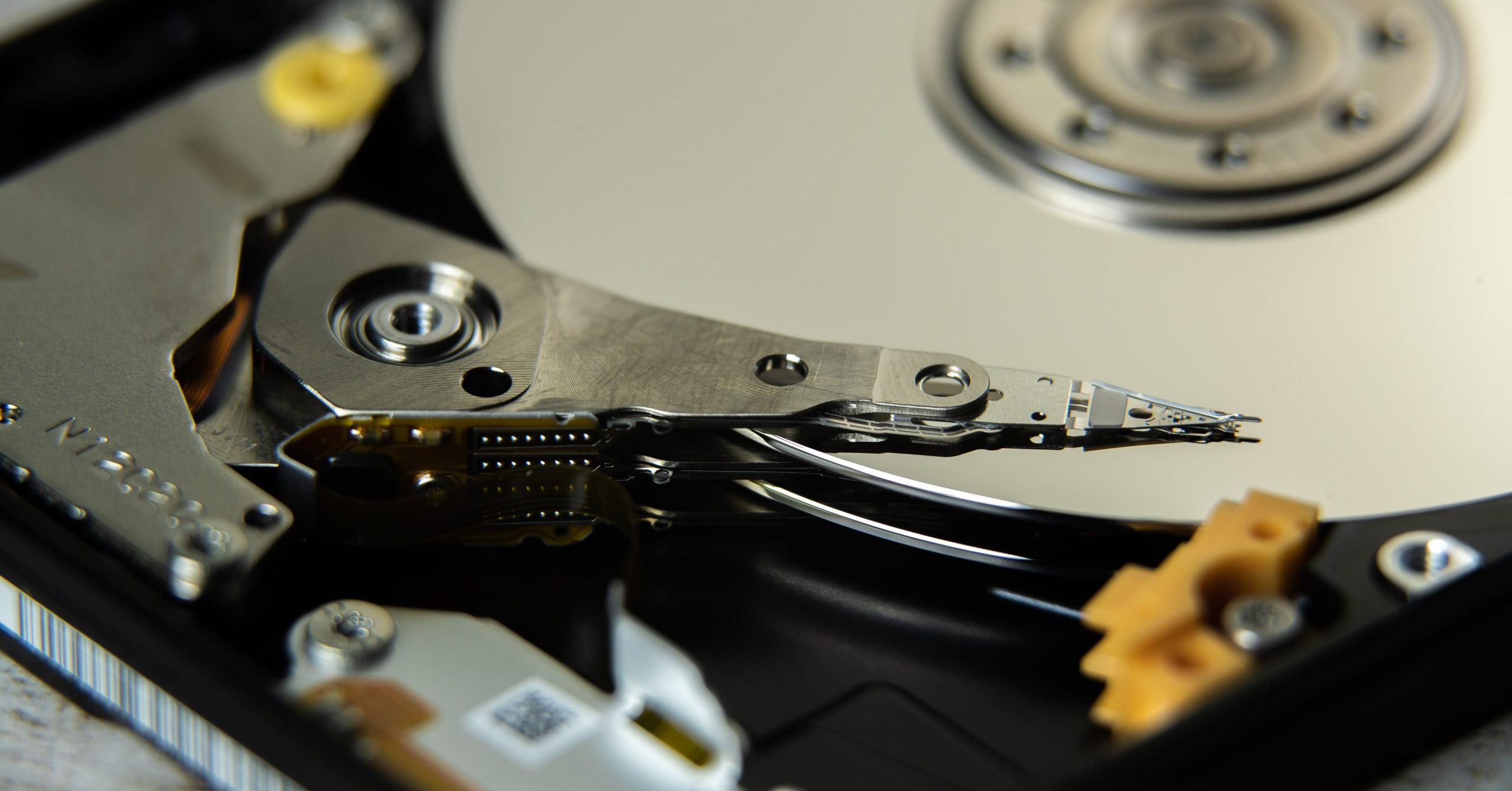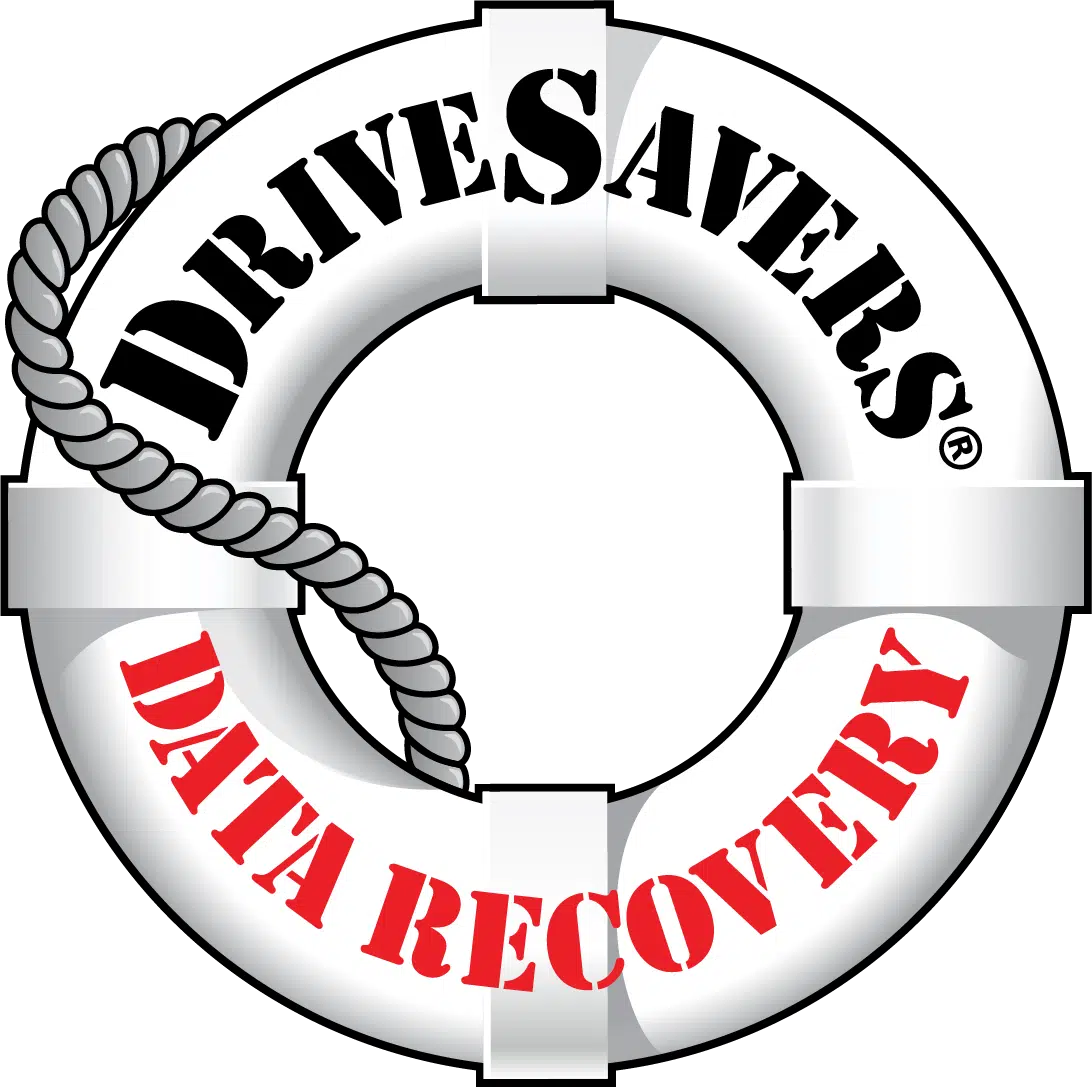n a recent recovery, DriveSavers tackled a challenging RAID 5 failure. The 4x3TB array had entered Emergency Mode. The failure jeopardised 30 years of invaluable personal and professional data for the customer.
What Causes a Head Crash on a Hard Disk

A hard drive head can easily be compared to a brain, because it reads and interprets data just like human brains. This part of the hard drive also takes in new data, saving the information for later use. Our brains work in a similar fashion absorbing, interpreting, storing and recalling the world around us.
Another similarity shared by the hard drive head and the head of a human: their owners can’t operate without them.
A faulty hard drive head leaves users dead in the water. There’s nothing the hard drive can do without a fully functioning head. Humans are pretty useless without working heads, too. But we’ll save discussing those causes for another day!
Causes of hard drive head crashes
So what causes a head crash on a hard disk, anyway? There’s almost never a simple answer to this question, because there are several causes or combinations of causes potentially causing an issue. Here are a few of the most common causes of hard drive head crashes.
Platter problems
Most hard drive head issues aren’t head issues, at all. The hard drive’s platters, where the disk’s data is stored, are actually the root cause of many head crashes. When hard drive heads can’t read the platters, they tend to read/write repeatedly until the hard drive head crashes.
Platters can become damaged for any number of reasons. When they do, the hard drive head is impacted and eventually crashes. In some cases, they simply wear out over time and extended periods of use. Wear and tear is a common problem for platters and, as a result, a frequent outcome of hard drive head crashes.
Sometimes, the hard drive head’s actuator arm—what actually reads and writes—damages the platters. If this component malfunctions, the platter’s magnetic coating can be destroyed. Without the coating, microscopic dust particles begin to expand and cause the hard drive head to fail.
Dirty drive
Speaking of, dust is one of the hard drive’s worst enemies. These tiny particles of dirt may seem harmless, but to a spinning hard drive head they might as well be boulders hurled by the Hulk himself.
When dust particles are introduced to the drive’s intricate components, they contact the hard drive head while spinning. The impact of these particles cause an almost immediate head crash. Dust is destructive!
Lack of care
If a hard drive isn’t handled properly, a whole host of issues can arise. Specifically, spindle arms and heads are easily misaligned if the hard drive is tossed around or, in the worst case, dropped. When components are misaligned, a head crash is a guarantee, not just a possibility.
The damage caused by any type of physical shock is amplified if the heads are spinning at the time of impact. In those cases, a hard drive head crash will almost certainly occur.
Shoddy craftsmanship
Despite the reliability of modern hard drives, there are still instances where defects impact hard drive heads. No manufacturing process is perfect and compromised components do negatively impact performance.
Unfortunately, even brand new drives will likely have a few defects, although the best ones on the market typically have the fewest problems from the start.
Solutions to save your data
Fortunately, there are proactive steps you can take to prevent head crashes.
Research the product
We were just talking about shoddy craftsmanship leading to hard drive head crashes. Avoid those types of head crashes by doing your research before buying a hard drive.
Find out what manufacturers to avoid and what manufacturers build a reliable hard drive product. Read reviews of individual models, and don’t forget to take capacity into consideration. If you take the time to thoroughly research, you’ll find a great hard drive at your desired price point and storage capacity.
Prevent to protect
As with many things in life, prevention is key.
A hard drive is a sophisticated piece of technology and should be handled with the utmost care. If you don’t treat your hard drive with respect, you risk losing your data.
Take good care of your hard drive. Don’t let your CPU get dirty, and keep dust from getting inside the unit. If dust does get in, the way heat is dissipated will be negatively affected. This increases the likelihood the unit will overheat. A cool drive operates effectively and doesn’t strain.
Most importantly, be gentle with your laptop. Don’t bang the computer around or carry the laptop in your arms without being certain you won’t drop it. This can be challenging given the portability of these devices, but try your best! Many hard drive head crashes are easily prevented by simply taking better care of the hard drive in the first place.
Back up before it blows up
Hard drive heads crash. They just do. But before a head crash occurs, there are ways to protect your data. Use an external hard drive or cloud-based storage solution to back up your information.
Back up at regular intervals to ensure you always have a recent copy of your data stored on your back up drive. So get on a backup schedule, and stick to it!
Freeze!
If you believe your hard drive head has crashed, stop what you’re doing, and step away from the computer. This is a tough one, because our natural reaction in those moments is to panic at the thought of losing our data and make some sort of attempt to “fix” the problem.
Taking any action further risks irreparable damage to your hard drive. And additional damage can prevent you from ever being able to retrieve your information. So resist the urge, and step away from the machine!
Seek professional help
Any time you have trouble with your hard drive, whether the issue was caused by a head crash or not, seek the advice and assistance of a qualified data recovery specialist.




